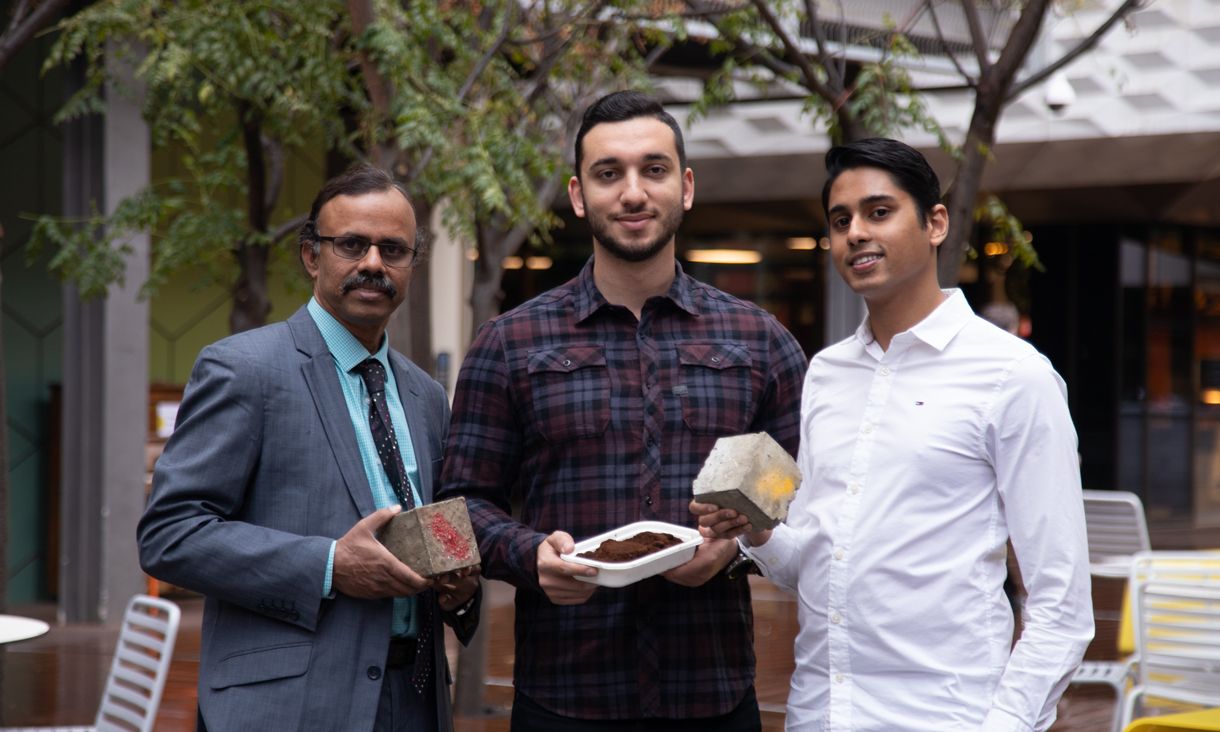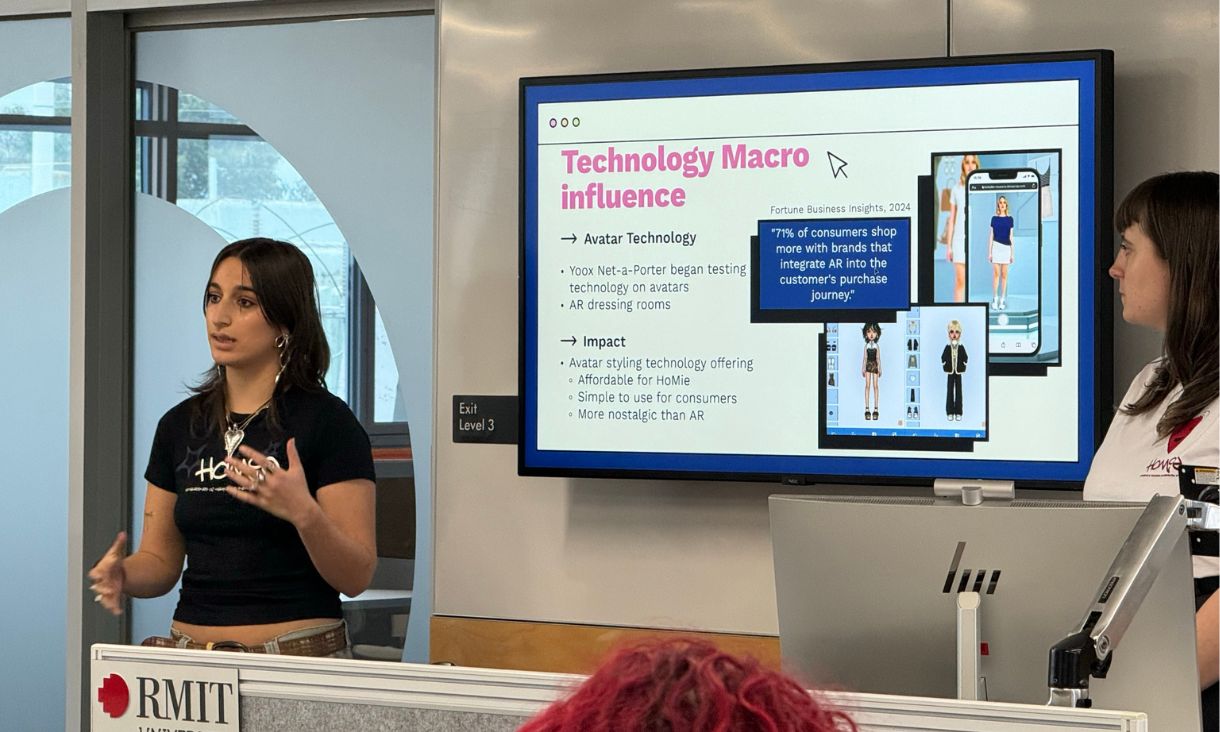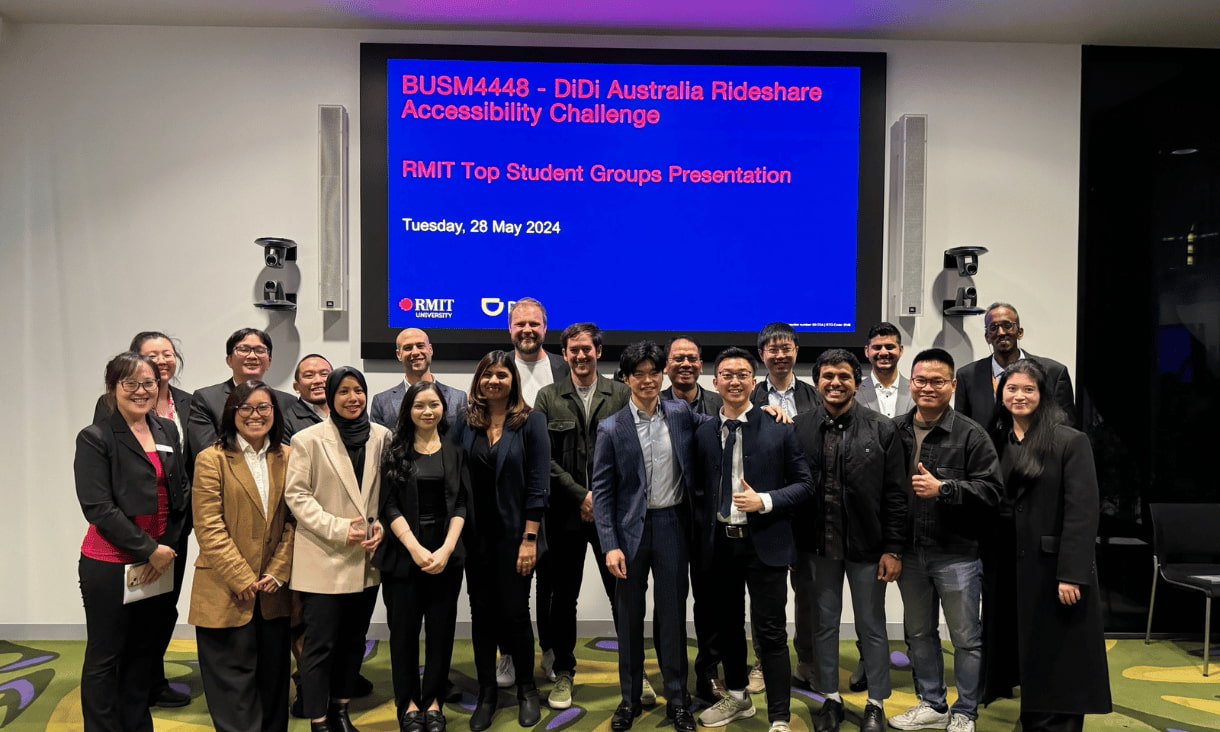RMIT’s work-integrated learning staff have been working to ensure students can still complete their internships while learning remotely.
Despite current restrictions, RMIT has continued to work with Australia’s most innovative businesses to fill work-integrated learning placements and connect new industry partners with work-ready students.
Transitioning face-to-face placements online
Belinda Anson, Senior Manager Partnerships in the College of Design and Social Context, said the studio model used within RMIT means students have quickly adapted to complete their internships remotely.
"Businesses are consistently impressed with the talent and work-preparedness of RMIT students and that's a result of the way we integrate real-world projects and exploration into the ways we teach, in partnership with industry," Anson said.
"Remote ways of working are commonplace for students.
"Whilst the pandemic has had a dramatic effect how business, communities and universities approach engagement, adaptation has been remarkably swift within RMIT and we are grateful to businesses for supporting students in what might be new ways."
Architecture and interior design practice Wowowa is hosting third-year Interior Design (Honours) student Audrey Ng.
While not able to attend the office, Audrey has continued her placement through video conferences and emails from the comfort of her home.
She’s leading a project to develop a sustainability rating tool for building materials for current and future use, with the aim to have net zero emissions by 2030.
“The opportunity to help in working towards net zero emissions by 2030 has been nothing short of amazing,” Ng said.
Like many students, her experience completing her internship from home has been unique.
“Without being at the office, you miss out on having other designers look over your shoulder to comment on your progress throughout the day,” she said.
“Luckily, Wowowa has been very helpful with providing feedback where necessary through email, so it’s really not too big of a problem.
“We have very fun – but still productive – Zoom meetings.”
For students who are new to completing their studies form home, Ng said it has been an invaluable experience so far.
“You’ll learn to work as autonomously as possible which is a huge advantage in the workplace,” she said.
“I wholeheartedly encourage other students to use this time and opportunity to improve these skills as much as they can.”
Elsie Hooi, a Work-Integrated Learning Coordinator in the College of Business and Law, said she was also happy to see many businesses continue to honour pre-planned internships.
“It is important for placements to continue – whether it’s on-site or virtually,” Hooi said.
“Students experience how organisations react to such a significant event and are able to work with the organisations to mitigate the impacts.
“We’re so pleased to see organisations have placed trust in our undergraduates during this time.”
Software engineering students quick to adapt
School of Science Lecturer Melissa Timbs supports students with their internships and industry placements.
Having worked closely with RMIT industry partners such as NAB, Jemena and Leidos this semester, Timbs understands the challenges associated with students interning from home.
But Timbs said she was impressed with her students’ ability to adapt to the ever-changing business environment.
“The students have done a great job in transitioning to working remotely from home,” she said.
“Getting to know a new organisation – along with their direct people managers, project managers, teams and peers – while working can make this time for interns and masters students very stressful.
“I have been really impressed with how businesses have supported students through this time and the flexibility that students have shown.”
Timbs said working virtually for Postgraduate Information Technology Projects this semester was a great experience.
“The businesses working with our students have been very supportive and understanding, taking the time to check in regularly with the students and ensuring consistency of communication and project management support,” she said.
“We have been very grateful for businesses ongoing support. We have a number of student internships this semester which shows how valuable software engineering skills are to the industry.”
Global perspectives for business students
Sebastian Telsemeyer is a Senior Data Scientist at Delivery Hero and RMIT alumnus who recently presented a guest lecture to RMIT’s Database Design and Development students.
Delivery Hero is a European multinational online food-delivery service based in Berlin, operating in over 40 countries internationally.
Telsemeyer discussed the importance of data-related profiles in the industry, along with knowledge in cloud infrastructure and big data.
“If you want you can split the data-field into three segments, although there are definitely overlaps: analysts, scientists and engineers,” he said.
“An analyst should be able to build reporting or extract insights from data.
“A scientist should ideally bring a strong mathematical or computer science background, be able to read research papers, and develop models to tackle all kinds of problems.
“The scientist will usually work closely together with machine learning engineers, who try to bring models into production and make them survive in the wild.”
Lecturer Yee Ling Boo said the opportunity to gain international industry experience was a ‘wonderful serendipity’.
“Initially, I was a bit worried of not getting an industry speaker for on-campus guest lecture due to the pandemic and lock-down,” Boo said.
“But with online teaching, it turned out to be an opportunity in which an international guest lecture is made possible and in fact successful.”
Help our work-ready students get the industry experience they need and discover the power of an RMIT intern here.
Story: Caleb Scanlon and Mark Moffat




